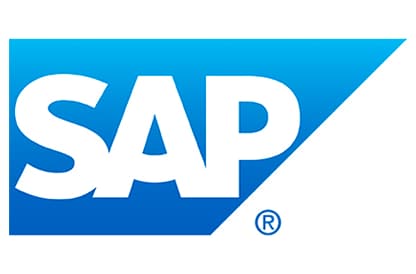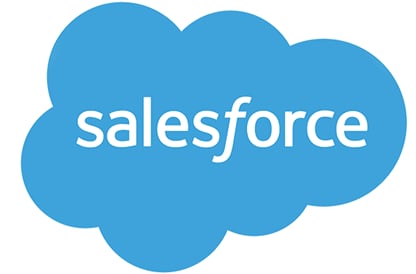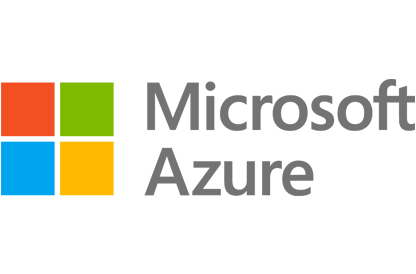Why OpenText
Why OpenText
Overview Why OpenText
OpenText brings decades of expertise to help you unlock data, connect people and processes, and fuel AI with trust
Manage and connect data
Unify data seamlessly across your enterprise to eliminate silos, improve collaboration, and reduce risks
AI-ready information
Get AI-ready and transform your data into structured, accessible, optimized information
Built-in security and compliance
Meet regulatory and compliance requirements and protect your information throughout its lifecycle
Empowering people
Overview Empowering people
OpenText helps people manage content, automate work, use AI, and collaborate to boost productivity
Customers
See how thousands of companies around the world are succeeding with innovative solutions from OpenText
Employees
Our people are our greatest asset; they are the life of the OpenText brand and values
Corporate Responsibility
Learn how we aspire to advance societal goals and accelerate positive change
Partners
Find a highly skilled OpenText partner with the right solution to enable digital transformation
How we compare
Content Management
Service Management
Deploy anywhere
Overview Deployment options
Explore scalable and flexible deployment options for global organizations of any size
Sovereign cloud
Local control. Global scale. Trusted AI
Private cloud
Your cloud, your control
On-premises
Free up resources, optimize performance and rapidly address issues
Public cloud
Run anywhere and scale globally in the public cloud of your choice
AI leadership
Overview Aviator AI
See information in new ways
OpenText™ Aviator AI
AI that understands your business, your data, and your goals
OpenText™ MyAviator
Say hello to faster decisions. Your secure personal AI assistant is ready to get to work
OpenText™ Business Network Aviator
Gain better insights with generative AI for supply chains
OpenText™ Content Aviator
Power work with AI content management and an intelligent AI content assistant
OpenText™ Cybersecurity Aviator
Improve your security posture with AI cybersecurity and agile threat detection
OpenText™ DevOps Aviator
Enable faster app delivery, development, and automated software testing
OpenText™ Experience Aviator
Elevate customer communications and experiences for customer success
OpenText™ Service Management Aviator
Empower users, service agents, and IT staff to find the answers they need
Aviator AI
Overview Aviator AI
See information in new ways
OpenText™ Aviator AI
AI that understands your business, your data, and your goals
OpenText™ MyAviator
Say hello to faster decisions. Your secure personal AI assistant is ready to get to work
OpenText™ Business Network Aviator
Gain better insights with generative AI for supply chains
OpenText™ Content Aviator
Power work with AI content management and an intelligent AI content assistant
OpenText™ Cybersecurity Aviator
Improve your security posture with AI cybersecurity and agile threat detection
OpenText™ DevOps Aviator
Enable faster app delivery, development, and automated software testing
OpenText™ Experience Aviator
Elevate customer communications and experiences for customer success
OpenText™ Service Management Aviator
Empower users, service agents, and IT staff to find the answers they need
Analytics
Overview Analytics
Predict, act, and win with real-time analytics on a smarter data platform
OpenText™ Aviator Search(AI)
Give users access to the answers they need, faster and easier, with multi-repository AI-based search that lets you contextualize everything from clicks to conversations
Business Network
Overview Business Network
Connect once, reach anything with a secure B2B integration platform
Content
Overview Content
Reimagine knowledge with AI-ready content management solutions
OpenText™ Content Aviator(AI)
Supercharge intelligent workspaces with AI to modernize work
Cybersecurity
Overview Cybersecurity
Integrated cybersecurity solutions for enterprise protection
OpenText Cybersecurity for SMBs & MSPs
Purpose built data protection and security solutions
OpenText™ Cybersecurity Aviator(AI)
Reinvent threat hunting to improve security posture with the power of agile AI
DevOps
Overview DevOps
Ship better software—faster—with AI-driven DevOps automation, testing, and quality
Experience
Overview Experience
Reimagine conversations with unforgettable customer experiences
Observability and Service Management
Overview Observability and Service Management
Get the clarity needed to cut the cost and complexity of IT operations
OpenText™ Service Management Aviator(AI)
Redefine Tier 1 business support functions with self-service capabilities from private generative AI
APIs
Overview APIs
Build custom applications using proven OpenText Information Management technology
OpenText™ API Services
Build it your way with OpenText Cloud APIs that create the real-time information flows that enable custom applications and workflows
Device and Data Protection
Overview Device and Data Protection
Protect what matters, recover when it counts
Unified Endpoint Management Tools
- OpenText™ Endpoint Management
- OpenText™ ZENworks Suite
- OpenText™ ZENworks Service Desk
- OpenText™ ZENworks Configuration Management
- OpenText™ ZENworks Endpoint Security Management
- OpenText™ ZENworks Full Disk Encryption
- OpenText™ ZENworks Endpoint Software Patch Management
- OpenText™ ZENworks Asset Management
Solutions
Trusted Data & AI
Overview Trusted Data & AI
Secure information management meets trusted AI
OpenText AI Data Platform
A unified data framework to elevate data and AI trust
OpenText Aviator Studio
A place where you can build, deploy, and iterate on agents in your data's language
OpenText Discovery
A set of tools to help ingest data and automate metadata tagging to fuel AI
OpenText Data Compliance
A suite of services and APIs that make governance proactive and persistent
OpenText Aviator AI Services
Professional services experts who help you on your AI journey
Information Reimagined
Overview Information Reimagined
Get greater visibility and sharper insights from AI-driven information management. Ready to see how?
Knowledge reimagined
Transform daily work with enterprise content management powered by AI
Service Management reimagined
Cut the cost and complexity of IT service management, AIOps, and observability
Connections reimagined
AI-powered B2B integration for supply chain success
Conversations reimagined
Drive value, growth, and loyalty with connected customer experiences
Engineering reimagined
Agile development and software delivery? It only seems impossible
Security reimagined
Cybersecurity for the Enterprise
Decisions reimagined
Unlock insights with AI data analytics
Artificial Intelligence
Overview Aviator AI
See information in new ways
OpenText™ Aviator AI
AI that understands your business, your data, and your goals
OpenText™ MyAviator
Say hello to faster decisions. Your secure personal AI assistant is ready to get to work
OpenText™ Business Network Aviator
Gain better insights with generative AI for supply chains
OpenText™ Content Aviator
Power work with AI content management and an intelligent AI content assistant
OpenText™ Cybersecurity Aviator
Improve your security posture with AI cybersecurity and agile threat detection
OpenText™ DevOps Aviator
Enable faster app delivery, development, and automated software testing
OpenText™ Experience Aviator
Elevate customer communications and experiences for customer success
OpenText™ Service Management Aviator
Empower users, service agents, and IT staff to find the answers they need
Industry
Overview Industry solutions
Improve efficiency, security, and customer satisfaction with OpenText
Energy and resources
Transform energy and resources operations with cloud, cybersecurity, and AI
Financial services
Boost customer experience, compliance, and efficiency with AI
Government
Reimagine your mission with government-secure information management
Healthcare and life sciences
Improve care delivery and patient engagement with AI-powered solutions
Legal
Modernize legal teams with automated, AI-powered legal tech solutions
Manufacturing
Modernize manufacturing operations and logistics to reduce costs and ensure compliance
Retail and consumer goods
Enhance consumer engagement with omnichannel retail solutions and AI
Enterprise Application
Overview Solutions for Enterprise Applications
Run processes faster and with less risk
Services
Services
Overview Services
Achieve digital transformation with guidance from certified experts
Professional Services
Modernize your information management with certified experts
Customer Success Services
Meet business goals with expert guidance, managed services, and more
Support Services
Turn support into your strategic advantage
Managed Services
Free up your internal teams with expert IT service management
Learning Services
Discover training options to help users of all skill levels effectively adopt and use OpenText products
Professional Services
Overview Professional Services
Modernize your information management with certified experts
Customer Success Services
Overview Customer Success Services
Meet business goals with expert guidance, managed services, and more
Support Services
Overview Support Services
Turn support into your strategic advantage
Managed Services
Overview Managed Services
Free up your internal teams with expert IT service management
Learning Services
Overview Learning Services
Discover training options to help users of all skill levels effectively adopt and use OpenText products
Partners
Find a Partner
Overview Find a partner
Information is the heartbeat of every organization. We build information management software so you can build the future
Cloud Partners
Overview Cloud Partners
OpenText partners with leading cloud infrastructure providers to offer the flexibility to run OpenText solutions anywhere
Enterprise Application Partners
Overview Enterprise Application Partners
OpenText partners with top enterprise app providers to unlock unstructured content for better business insights
Partner Solutions
Overview Partner Solutions
Discover flexible and innovative offerings designed to add value to OpenText solutions
Resources for Partners
Overview Resources for Partners
Discover the resources available to support and grow Partner capabilities
Support
Overview Customer Support
Get expert product and service support to accelerate issue resolution and keep business flows running efficiently
Resources
Overview Resources
Explore detailed services and consulting presentations, briefs, documentation and other resources
Choose your region:
Europe, Middle East and Africa
Asia–Pacific
What is sovereign AI?

Overview
As AI grows in popularity, organizations are looking to place guardrails around their implementations to avoid adverse outcomes. Sovereign AI is emerging as a solution to maintain control over AI systems while ensuring compliance with local laws and regulations. It offers regulatory compliance, mitigates risks, maintains strategic control, and aligns with cultural values, making it a critical component of modern AI strategies.
Sovereign AI
What is sovereign AI?
Sovereign AI is the ability to develop, deploy, and govern AI systems using infrastructure, data, and models that are fully controlled and compliant within the enterprise’s legal and strategic boundaries. This concept is crucial for organizations aiming to maintain control over their AI systems while ensuring compliance with local laws and regulations. Sovereign AI encompasses several key elements, including infrastructure sovereignty, data sovereignty, model sovereignty, governance sovereignty, and operational autonomy.
Infrastructure sovereignty means AI systems run on private cloud, sovereign cloud, or on-premises systems, avoiding reliance on hyperscalers or foreign-hosted platforms. This ensures the infrastructure is fully controlled by the organization, reducing the risk of external influence.
Data sovereignty involves using data that resides in, processed in, and stored in compliance with local laws, such as GDPR or HIPAA. This delivers IP protection and data privacy, which are critical for maintaining trust and compliance.
Model sovereignty refers to custom-built or fine-tuned models using enterprise-specific data. Organizations retain full control over model weights, architecture, and updates to be sure the AI systems are tailored to their specific needs and requirements.
Governance sovereignty means governing AI systems through internal policies for fairness, transparency, and accountability. This allows for auditability and risk management across jurisdictions, ensuring that AI systems operate within organizations’ ethical and compliance standards.
Operational autonomy means AI systems can operate independently of external APIs or services, supporting business continuity even in cases of geopolitical or vendor disruption. This is crucial for maintaining control over AI systems and ensuring that they can continue to operate effectively, regardless of external factors.
What are the key elements of sovereign AI?
Sovereign AI systems are:
- Hosted on infrastructure the company owns or fully controls, be it private cloud, sovereign cloud, or on-premise systems.
- Trained on data that resides in, processed in, and stored in compliance with local laws (e.g., GDPR, HIPAA).
- Equipped with models that are custom-built or fine-tuned using enterprise-specific data. Organizations retain full control over model weights, architecture, and updates.
- Designed to operate independently of external APIs or services.
- Aligned with internal governance, compliance, and ethical standards.
- Protected from external influence, surveillance, and geopolitical or vendor disruption.
What are the benefits of sovereign AI?
Sovereign AI delivers strategic control so organizations can differentiate their AI capabilities and tailor them to business needs to gain a competitive advantage. Cultural alignment embeds enterprise values and domain-specific language into AI behavior, ensuring that the AI systems reflect the company's culture and values.
Sovereign AI ensures:
- IP protection during model training.
- Isolation from shared infrastructure to avoid leakage risks.
- Customizable AI that reflects enterprise context and values.
- Cross-functional collaboration.
- Real-time analytics.
Why the emphasis on sovereign AI today?
Geopolitical competition is prompting nations to seek technological autonomy so they can avoid dependence on foreign systems. AI is seen as a strategic asset, similar to energy or defense infrastructure, and countries are racing to secure control over data centers, chips, and cloud services. National security and data sovereignty concerns have led governments and enterprises to fear that foreign AI systems could introduce backdoors, enable surveillance, or manipulate public discourse. Sovereign AI ensures local control over sensitive data, addressing these concerns.
Cultural and linguistic representation is another important factor, as global AI models often reflect western biases and are trained with primarily English data. Countries like Singapore, Taiwan, and Saudi Arabia are building models that reflect local languages and cultural values, ensuring their AI systems are representative of and relevant to their populations.
Economic competition drives the need for sovereign AI as it stimulates domestic innovation, creates high-value jobs, and builds a resilient tech ecosystem. Governments are investing heavily in sovereign infrastructure to support these goals.
How can OpenText help with sovereign AI?
OpenText™ Private Cloud offerings help organizations operate globally while maintaining strict control over data and meeting regional data sovereignty demands. With data centers strategically placed across key regions—including Canada, the UK, Germany, France, and Australia—OpenText provides organizations the flexibility to choose where their data resides. As data sovereignty and AI become boardroom priorities, OpenText is making it easier for businesses to comply with data-protection regulations to leverage AI with confidence that the data it uses is secure and compliant.
OpenText Private Cloud solutions provide tailored environments that ensure compliance while offering the highest levels of security. Key benefits include:
- Dedicated, single-tenant environments offering maximum isolation and enhanced security for sensitive data.
- Customizable deployment options to meet specific regulatory and operational requirements.
- End-to-end encryption, including customer-controlled key management to maintain the integrity and confidentiality of data.
- Comprehensive compliance support for global standards, such as ISO 27001, HIPAA, and IRAP.
OpenText also offers a comprehensive suite of AI-powered solutions designed to address a wide range of organizational needs:
- OpenText™ Content Management helps organizations capture, archive, search, and summarize both structured and unstructured data.
- OpenText™ Observability and Service Management enhances efficiency across functions such as IT, HR, and supply chain.
- OpenText™ Cybersecurity Cloud provides threat detection, data encryption, identity management, and application security to help safeguard sensitive information.
- Private AI capabilities with OpenText™ Aviator™ allow for secure, in-country generative AI on premises, so you can leverage AI while ensuring you have full control of your data.





